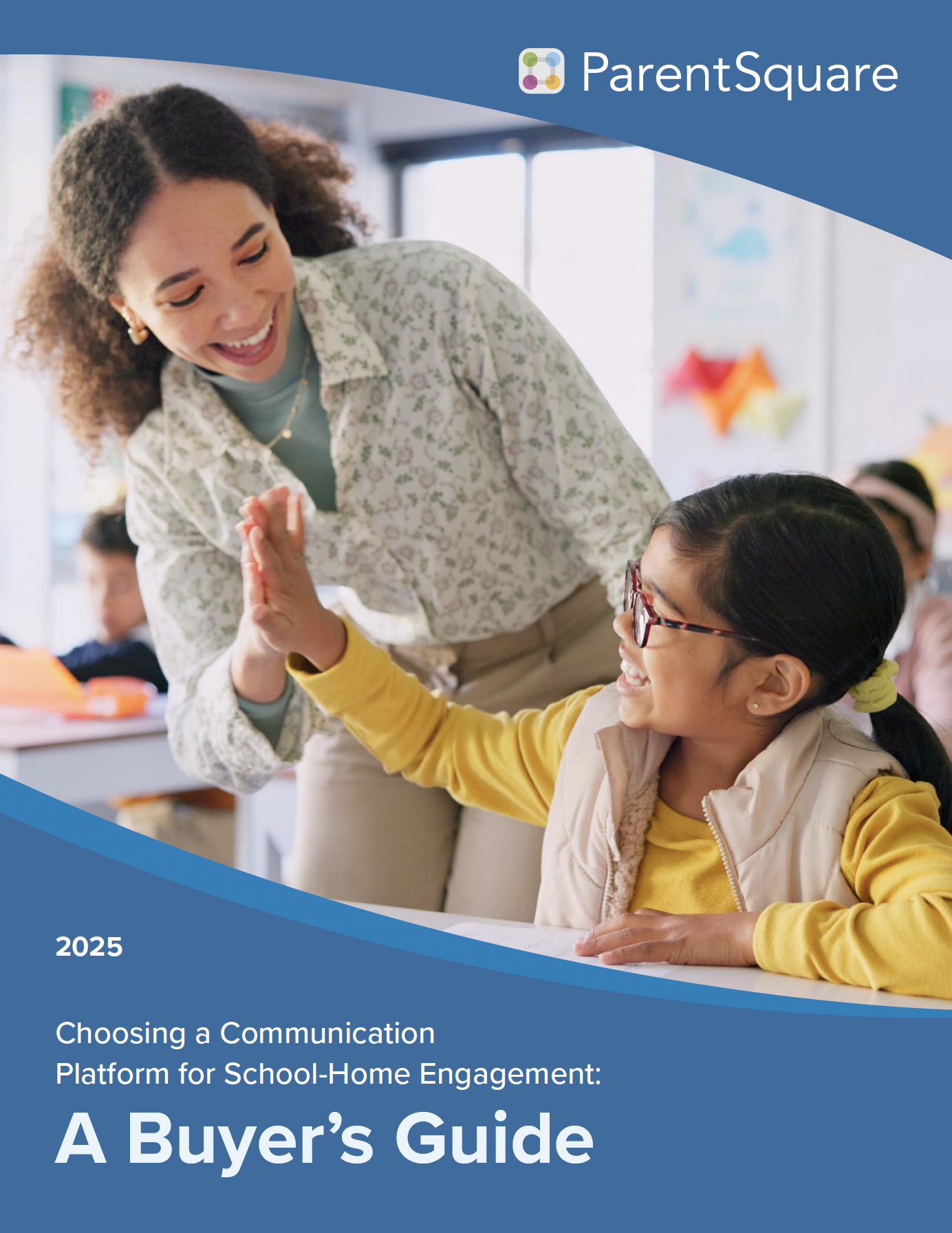
Parental and guardian engagement is paramount to building a solid foundation for children and their educational development. When schools empower families to support their children with resources, tools and interaction, they can tap into greater potential for achievement and success.
What is parental or guardian engagement?
Parental and guardian engagement, also sometimes known more generally as family engagement, is when schools, staff and key members of the family and community work together to improve the overall development, learning, and health of children.
The importance of family engagement
Family leadership and involvement in education provides a solid foundation for student success now and in the future. Studies observing parental engagement in schools and within the community show that parental or guardian engagement significantly benefits children of all ages, from preschool to adolescents.
Not only does family engagement improve grades, development and school attendance, but children become more social and confident, and enjoy a stronger relationship with their parents and guardians.
The difference between parental involvement and parental engagement
There is a significant difference between parental involvement and parental engagement as these terms pertain to the education of children. Involvement typically refers to the active participation of family members, such as guardians and parents, in their child’s school activities, such as helping with homework assignments, community events, and other scheduled extracurricular activities throughout the year.
An engaged parent or guardian suggests a more complete contribution, as parents and family members focus on a deeper, more comprehensive and focused involvement in the school and in their children’s educational activities. This might include active discussion and decision-making on matters in the school district and within the greater community. Parents and guardians work directly with teachers, school staff and community partners to improve and deliver excellent opportunities for students to achieve their academic goals.
Strategies to increase parental engagement in schools
Engaging parents, guardians and families’ interest in the school community is integral to building a strong relationship between students at home and school.
Establishing effective communication channels
School teachers and staff can facilitate meaningful and long-term connections with students and their families throughout their elementary school, middle school and high school experience. For example, some useful activities could include:
- Using digital platforms and apps to communicate effectively and provide easy access and engagement opportunities such as ParentSquare
- Providing regular updates through email bulletins and newsletters to parents and guardians
- Hosting parent-teacher interviews and family meetings, and creating other opportunities to discuss academic progress
Creating a welcoming and inclusive school environment
Students and their families are more likely to engage more completely when they feel that they are a part of the community. Some examples of activities to promote parental engagement in education might involve:
- Organizing regular orientation sessions for new parents and guardians
- Hosting open information sessions for any changes to the curriculum
- Encouraging families to participate in the decision-making process
- Offering translation services and other supports for diverse language needs and related accommodations for families
Offering educational resources and workshops
Providing educational resources and workshops for students and their families can build solid relationships while breaking down barriers and gaps in communication:
- Conducting informative workshops on child development for parents and guardians of elementary school students
- Sharing valuable resources, tools, reading materials
- Collaborating with community partners and organizations on specialized programs
Building strong school-home partnerships
When schools implement an effective family engagement policy and go the extra distance to support a wealth of engagement opportunities for students and their parents and guardians, progress is made toward ensuring greater student success. Best practices in the family engagement process make guardian and parental engagement easier and more satisfying for all by encouraging families to get involved in school events and activities.
Family events, celebrations and volunteer opportunities foster a sense of belonging and establish a solid support group between schools, families and community associations.
Encouraging active participation in school activities
Encouraging parents and guardians to take an active role in the school community offers significant potential for students to achieve their education goals. Some of the effective outcomes include:
- Promoting parent and guardian involvement in extracurricular events and activities, including sports, arts and community projects
- Regularly communicating with families through surveys to acquire feedback, ideas and suggestions
- Recognizing and appreciating families’ contributions and support
![]() ParentSquare makes it easy for parents to know what’s going on and directly engage with their child’s teacher and school contacts. Parents and guardians can sign-up for conferences, message the teachers directly, as well as see updates for events and school activities – all from within their app.
ParentSquare makes it easy for parents to know what’s going on and directly engage with their child’s teacher and school contacts. Parents and guardians can sign-up for conferences, message the teachers directly, as well as see updates for events and school activities – all from within their app.
Providing resources for parents to support learning at home
One of the best ways to encourage family engagement and learning at home and school is by providing appropriate resources and support tools for parents and guardians:
- Sharing educational materials, games and interactive tools through online platforms and apps
- Offering guidance on fostering a positive learning environment at home and within the community outside of school
- Suggesting activities for family involvement in homework, projects and events
Understanding parental engagement
Family-school partnerships and volunteer opportunities are examples of how schools encourage parents and guardians to participate more fully and actively in their child’s progress and in the greater community. As schools seek to connect with children and their families, they often provide regular updates on upcoming events, academic progress and related information, thereby creating ample opportunities for families to engage with their child’s school and favorably influence the educational environment.
Exploring the benefits of parental engagement on children’s behavior
There are numerous benefits in fostering parental engagement with the school community and enhancing the positive effect on children’s behavior:
- Improving communication between students and their teachers, parents and other community members
- Inviting new ideas and activities that encourage children and parents to get creative
- Building a positive connection with the school community, especially for students in special education programs
- Improving school safety and children’s health through physical education and similar activities that thrive on family support
Highlighting the value and impact of parental engagement
Building a rapport with parents creates a safe, inclusive environment for everyone involved. Family engagement encourages collaboration and better communication, and provides greater access to more students. The goal is to support learning at home and outside of the school setting. Parental and guardian engagement expands classroom learning to encompass a broader opportunity for education.
Conclusion
When school staff and the greater community work collaboratively together, they emphasize the critical role of family engagement in supporting strong school-home partnerships. This leads to better professional development and higher levels of academic success for students. It is a vital part of children’s education for families to stimulate and develop guardian and parental leadership roles in the community while actively implementing strategies to increase parental and family engagement in education.
References/Citations
Parent Engagement in Schools | DASH | CDC. (n.d.).
https://www.cdc.gov/healthyyouth/protective/parent_engagement.htm
Winthrop, R., Barton, A., Ershadi, M., & Ziegler, L. (2022, October 21). Collaborating to transform and improve education systems: A playbook for family-school engagement. Brookings. https://www.brookings.edu/essay/collaborating-to-transform-and-improve-education-systems-a-playbook-for-family-school-engagement/







